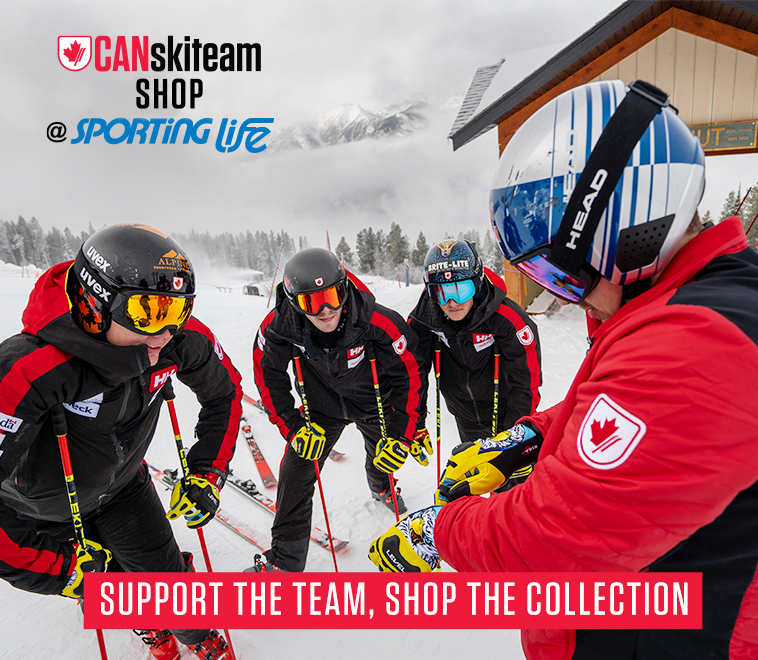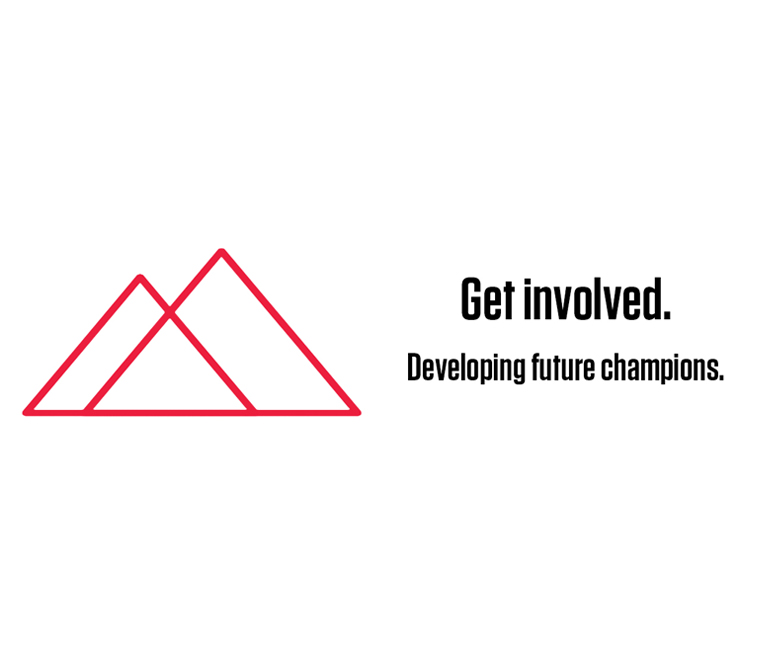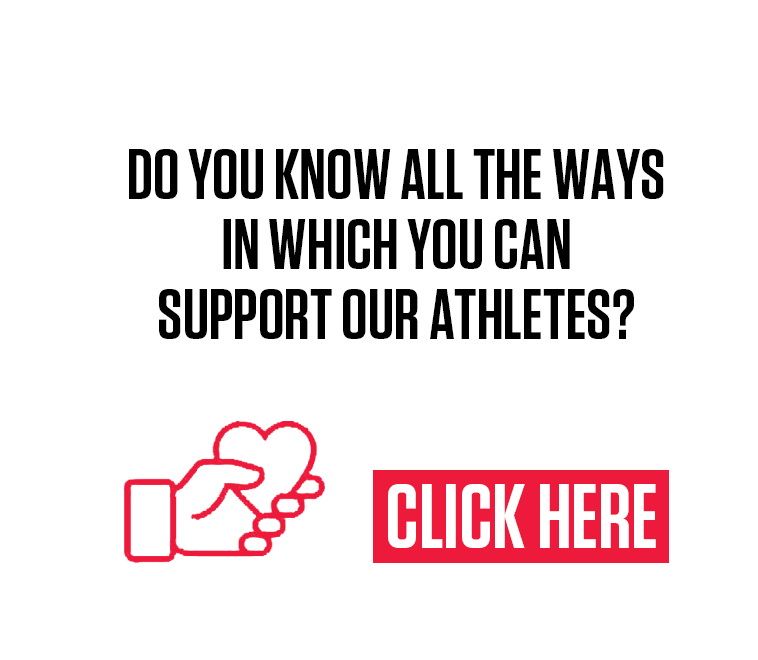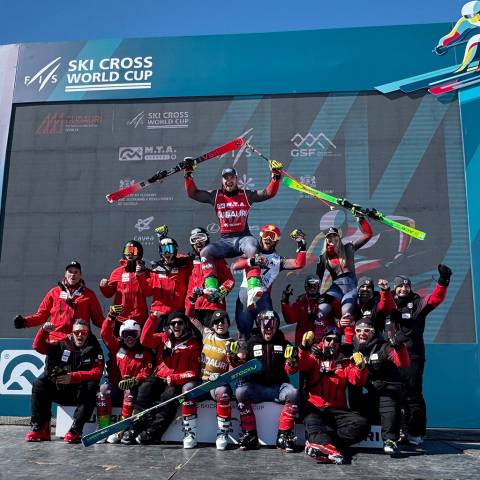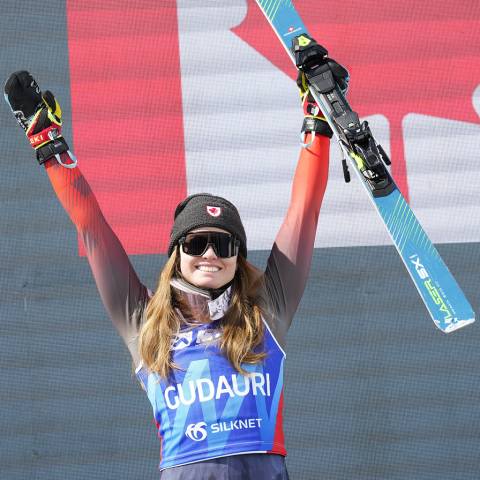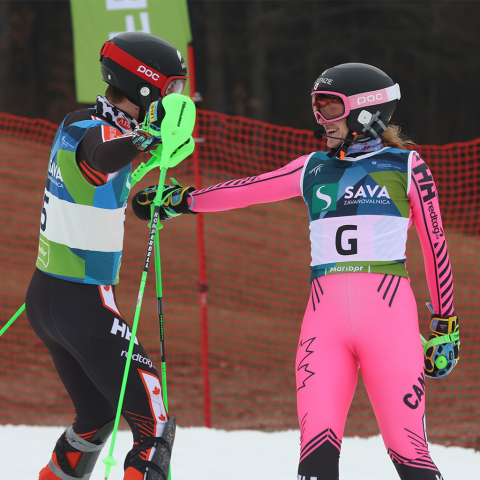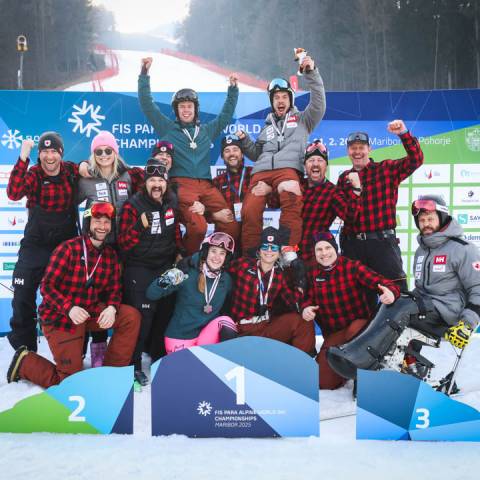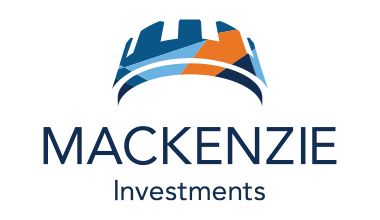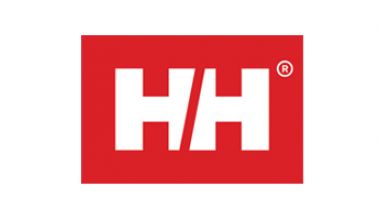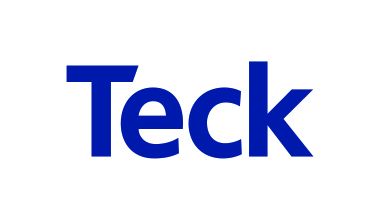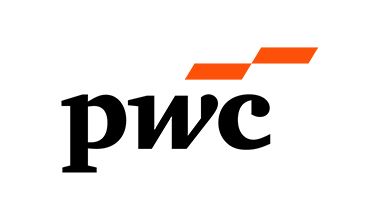For over thirteen years, Dr. Marcia Clark has been giving back to her community. Professionally, she has acted as Chief of Surgery at the Calgary South Health Campus Hospital, has taken on teaching as an Orthopaedic Surgeon and Clinical Associate Professor with the University of Calgary. Personally, she has volunteered to her sport with the Canadian Ski Team and supported the athletes on snow for training and racing.
“Ski racing helped me learn to set goals, achieve those goals, learn from failure, and gain confidence in myself and abilities,” shares Clark. “I was once told that I couldn’t be an orthopaedic surgeon because of the strength needed and the tools I would have to use. Skiing helped with giving me strength, and when I think of all the bindings I put on (a fall job at Abominable), how much ski tuning I did, and all the knitting I did in the van…. I wanted to prove those naysayers wrong.”
Marcia certainly did prove them wrong. Her Dad, Ted, introduced her to skiing through the Banff Kinsmen Ski School program. She joined the Banff Alpine Racers and went on to become one of Canada’s top junior athletes, winning the Cavendish Cup (Pontiac GMC Cup series equivalent), racing in the 1986 Sunshine World Cup downhill, taking home a bronze medal in the 1988 Canadian Championship slalom and forerunning the 1988 Olympic Winter Games.
Turning her attention to academics in 1991, Marcia earned her undergraduate degree racing NCAA with the University of New Mexico Lobos. “Earning a scholarship for NCAA helped me to think of skiing as a team sport and challenged me as a student,” she says. “I wouldn’t be a surgeon if I didn’t learn that I had the abilities to achieve in University and I think it was due to the support and competitiveness of my teammates at the University of New Mexico that pushed me along.”
Marcia attended the University of New Mexico for her undergrad and in 1996 started Medicine at the University of Calgary. She then went on to the University of Alberta, specializing in Orthopaedic Surgery.
Marcia is now a valued member of the Canadian Ski Team Medical program, traveling to volunteer her support for our World Cup athletes and through her sports medicine clinic in Calgary. She also provides medical care to numerous sports teams including Calgary Wolfpack Rugby, to the football University of Calgary Dinos, International Speed Skating and the Montreal Formula One Motor Racing Grand Prix.
Her children are following their mothers’ passion as members of the Banff Alpine Racers. “Now, seeing the community of my home club and how my kids – Aiden (FIS athlete), Adeline (U14 athlete) and Iain (U12 athlete) have embraced skiing and the fellowship within the club. I love connecting with the community of parents in the club and racing circuit too”.
In October, 2019, she was inducted by Alberta Alpine into the Canadian Rockies Ski Racing Hall of Fame as an Honoured Alumni of the Alberta Ski Team. We caught up with her this week to learn more about her changing world at the front lines against COVID-19.
What does “regular” work as an Orthopaedic Surgeon entail?
For me, as a Canadian Orthopedic Surgeon affiliated with a University in Calgary, I am performing surgery for about 20 percent of my typical work week. I also have the privilege of teaching medical learners, leading the surgery department at my hospital and directing a large academic lab. I like to break the work down into three overlapping domains: academic, clinical and leadership.
Surgeons keep a close tab on how they spend their time so I know my typical work week is 57 - 65 hours. Days start at seven a.m. with handover rounds. This is my first team to interact with. We review trauma cases from the past 24 hours with a team of care providers and the surgeon “on-call” for the day. Depending on my schedule, I then either go to the operating room (team two), go to the clinic (another team) or do administrative/academic work (a couple of more teams). Communication is key so there is a lot of paperwork. Yes, there is lots of paper, and we still use fax machines and pagers along with the dictations, forms, meetings with action items and four levels of committee meetings: hospital, local, national and international.
The key skills that I draw on and am constantly pivoting on are: problem-solving, advocating, assessing/managing risk, working in teams, communicating, advising, and understanding conflict while seeking resolution. These skills require a lot of flexibility, decision making with limited information, and a flattening of hierarchy because medicine happens in teams and their input is vital.
What has changed in your medical practice since the onset of COVD-19?
Shifting to a COVID-centric world has changed my day-to-day life. Decisions are now made with ever-changing information and being fallible is part it. There is a switch from our decentralized, flat hierarchy of teamwork to a centralized, top down hierarchy with direction coming from our provincial leads.
Now that I am not seeing patients or operating unless I am on trauma call as there are fractures to care of, my key skills in a pre-COVID world are now vital to the work of priority setting, delegation of tasks, high level meetings at national and provincial levels and communicating information to our co-workers.
There are many more meetings with daily updates, problem solving, allocation of resources and thinking ahead to so many questions. Is there enough oxygen to accommodate the surge? How many beds, ventilators, spaces and skilled people will we need if ----- (fill in the blank). But meetings feel different because we meet via telephone conference even in the hospital to maintain physical distancing.
Everything at the hospital feels different. There are fewer people around with no visitors and all lab, diagnostic imaging, outpatient services discontinued. Our hospital capacity is at 74 per cent, 40 per cent lower than usual to prepare for the patients we expect soon. Critical and urgent surgeries are still performed in our remaining non-COVID ORs, and each day a triage team allocates OR time and teams for these surgeries. The orthopaedic clinics are now part of the emergency room, and our team members have filled out redeployment skills in case help is needed in emergency, intensive care, or the medical units.
We have prepped COVID OR’s – stripped down, specialized OR’s to deal with people who are COVID probable/positive. As teams we need to manage these patients differently so we do not become infected ourselves. To make sure we can be there to take care of all patients safely, we are shifting our mind set to personal safety first. This includes specialized equipment and minimizing risk to the teams during aerosolized generating medical procedures (AGMP) such as intubation, where the virus can be shed onto us. It even includes appropriate donning and doffing of PPE. Doffing (or removing PPE) is the riskiest time for contaminating ourselves. Multiple simulations have been run in our OR’s and multiple worked scenarios have been developed. Nurses who are experts in PPE are teaching sessions with other teams on donning and doffing.
But everyone is really prepping and waiting. We meet daily to consider the stages in pandemic planning. We are building plans for the longer timelines of a pandemic surge based on our more acute plans from mass casualty incidents. Here in Alberta, we expect our surge, or peak, of COVID-19 cases in mid May. A calm has settled in the hospital for now.
How has your athletic training helped in these challenging times?
The biggest parallel between my athletic career and my surgical one centers around trusting and relying on my abilities and principles. I have built my skills and abilities on a strong foundation and must trust that training. Trust is also part of my teamwork. I have to trust that the team around me has my best interests and the same goals in mind.
Mental toughness and antifragility are important skills that also come from my skiing background, as does self-care.
Flexibility in an ever-changing environment (think weather changes for training or racing) is a must. Being rigid in your thinking and leading will serve no one. When there are successes, it is a shared experience, to be enjoyed as part of a team. Like skiing, there is continuous learning and improvement and seeking feedback and coaching is a common occurrence. Finally, as part of that self-care is understanding it is ok to not be “on” all the time.
Thank you to Alberta Alpine for the content contributed to this story.


